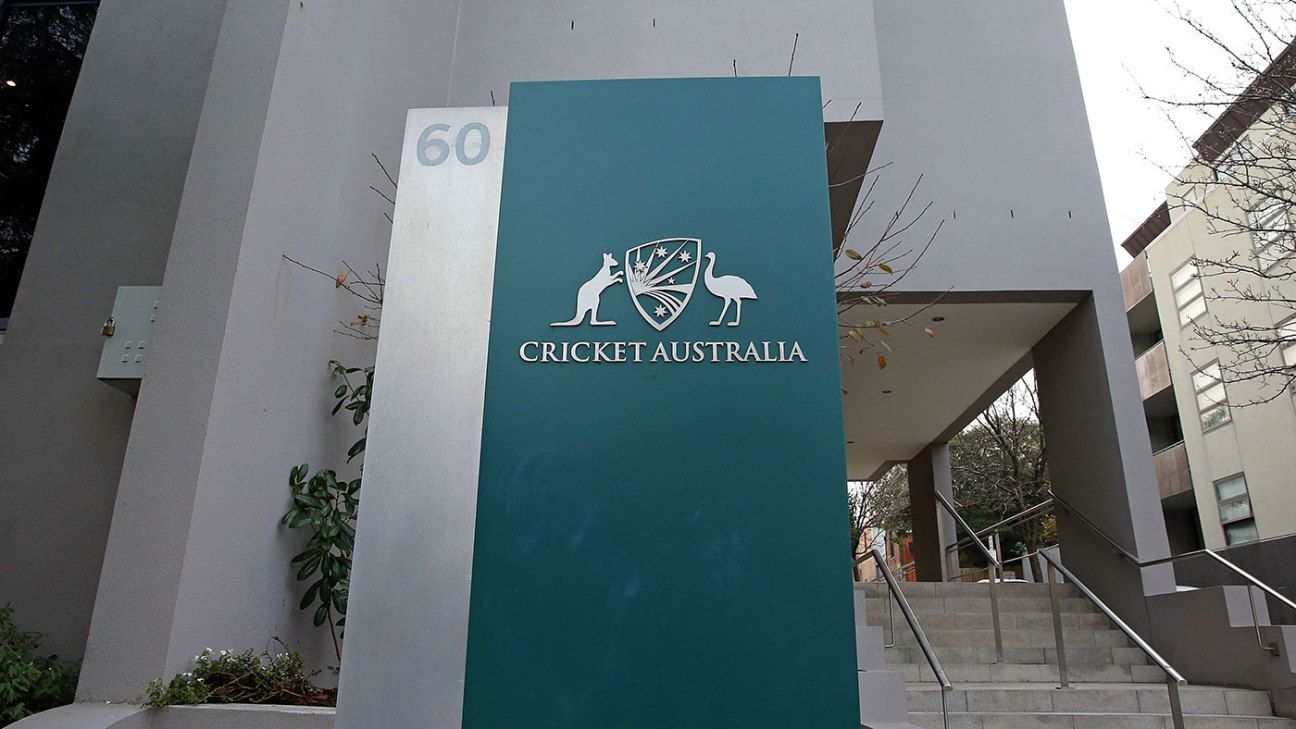
Stood down staff at Cricket Australia may find themselves working at Woolworths after the chief executive Kevin Roberts approached the supermarket giant and cricket sponsor about temporary work opportunities amid the coronavirus pandemic.
Roberts, who has maintained there is a united front in cricket about cash-saving decisions including mass staff stand downs on 80% pay cuts until at least July, dug in further on his chosen approach on Wednesday morning, also revealing that a home international season played without crowds could cost CA up to A$50 million in revenue. CA is not currently eligible for the federal government's JobKeeper support program having lost no major revenue streams from cancelled matches.
CA's state association owners compelled CA to back down on their original proposal to shave 45% from annual grants and the Australian Cricketers Association (ACA) - no stranger to conflict with the governing body in Roberts' time - are understood to be planning how to build elements of their fixed revenue percentage model into any revenue fluctuations next summer. Roberts, though, has continued to defend his chosen tack, even asserting on Wednesday that he has "vast majority" support for CA management's remedies.
ALSO READ: Cricket Australia mulls five India Tests behind closed doors
"I wrote to Brad Banducci the CEO of Woolworths given that Woolworths is among organisations that need more staff at the moment," Roberts told SEN Radio. "Our people and culture team are also working with other organisations who are in the habit of placing people in organisations and industries that have a temporary need for more people.
"So we're doing those things proactively and people are at the centre of everything we do, and as much as we hate making those sorts of decisions we had to make last week, the other side of that coin is certainly that we're supporting our people and looking for even temporary opportunities for them to be involved and earning income elsewhere when their income is reduced from cricket."
Stand downs until July are likely to be followed by redundancies and other cuts even if a full international season is played, due to setbacks such as the potential loss of revenue from matches needing to be played in empty stadiums. "Our revenue from ticket sales you could put a ring around A$40-50 million depending on the season," Roberts said. "So that is significant obviously, and something that goes into our planning."
Asked about how he reached the decision to stand down all but a handful of staff on only 20% of their usual salaries while executives remain on 80% of their usual base rates of pay, Roberts said that it had simply been a matter of judging how much work was able to be done while placing the business on hold and paying employees accordingly. Roberts faced direct questioning from his staff on this very issue on Tuesday, which he has said will save A$3 million from the bottom line of an organisation with annual revenue of about A$200 million from broadcast rights alone.
In its most recent annual report, CA listed executive pay - covering that of Roberts, his executive team and the chairman Earl Eddings - as totalling A$6.6 million, up from A$5.6 million for 2017-18. That salary bill has been shaved by some 20% amid the current suite of measures, while all but a few lesser paid staff have lost 80% of their wages.
"It's what activities are being paused and what's the skeleton staff we require for the activities that continue and that leads you to a temporary solution, which is the national coaches being part-time through this period," Roberts said. "It's something we need to continue managing sensitively no doubt, and we are doing that, which is why we're communicating with our people every second day, and our people can ask me any question on a live stream every second day.
In response to questions about reservations raised by state associations, the ACA and staff about the way CA has approached its cost-saving and planning measures around coronavirus, Roberts declared that "unity doesn't attract eyeballs in the media", and suggested that he "absolutely" had enough support to drive his chosen changes through.
"We know that you won't have 100% of people and 100% of stakeholders happy at any particular time. But the reality is that the vast majority of our people, our members, our stakeholders are very comfortable with how we're working through this. I think it's just the reality of the situation versus what is sometimes reported, given that stories of harmony don't necessarily sell. We're working through things in an open and really orderly way with all of those organisations. It's all about focusing on, in cricket parlance, the next ball."















 Phone: (800) 737. 6040
Phone: (800) 737. 6040 Fax: (800) 825 5558
Fax: (800) 825 5558 Website:
Website:  Email:
Email: 






